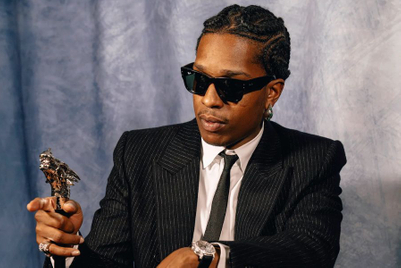
With her reputation for man-hating jokes, the Chinese stand-up comedian Yang Li has come under fire again. Earlier this year, the electronic brand Intel invited her to endorse its products. But the ad quickly sparked complaints from male netizens, who called for a boycott. And most recently, Mercedes featured the star in a promotional campaign, yet she once again raised the ire of China’s male public, which threatened to switch allegiance to rival carmakers BMW and Audi.

Due to the online pressure, both brands took down their posts, as the hashtag #IntelYangli reached over 250 million views, and Mercedes had several related hashtags hit over 100 million views.
But these incidents are not the first time netizens raised their online voice to sideline a KOL. Last year, Chinese pop idol Xiao Zhan was embroiled in a controversy over his fans’ irrational actions. Brands the star campaigned for — namely Estée Lauder, Piaget, and Qeelin — were not only boycotted; their customer service lines were crashed by enraged users demanding the companies terminate their collaborations with the celebrity.
After these recent incidents, no brand chose to “abandon” their star. But in light of these recent PR issues that brands now face in China, the question naturally arises: Should luxury brands distance themselves from controversial KOLs? Jing Daily spoke with top analysts to understand how brands can act in these scenarios and avoid them in the future.
Brands can win consumer loyalty by being loyal first
Are brands doing the right thing when distancing themselves from “controversial” celebrities, as in the case of Intel and Mercedes? Surprisingly, not always. Aside from extreme cases (Kris Wu, Zhang Zhehan), brands could face boycotts if they are not loyal to their ambassadors.
Chinese consumers tend to turn themselves into brand representatives. So if companies abruptly terminate their partnerships with celebrities, shoppers feel betrayed by them. Dao Nguyen, the founder of the strategic marketing agency Essenzia, told Jing Daily in a previous story that the “beauty brand Dr. Yu was boycotted by netizens on Weibo after it switched from Austin Li’s live broadcast room to Viya’s.”
In the case of Mercedes and Intel, while the two brands may have calmed the ire of male consumers, but they also “irked fans and female buyers,” said one Weibo user. But toward whom should brands lean? Chen Liang, the managing partner at éClair, a strategic branding, marketing, and communication consultancy for luxury brands, explained. “In the digital era, people who agree do not speak as loud as those that disagree,” he said, “but those who disagree may not be the brand’s actual consumers.” Therefore, only through surveys and research can companies receive an accurate answer.
Dumping a face often has repercussions for a brand image: Labels need a strong personality to make consumers feel secure, which they often achieve through ambassadors. Therefore, staying loyal to a spokesperson will help companies create a more solid identity, and as a result, attract stickier shoppers.
How can brands diversify their portfolio of ambassadors?
With growing calls for diversity and inclusivity, local consumers now demand a more diversified cast of ambassadors from brands. “Unique voices drive strong engagement and can positively impact your brand performance,” said Kim Leitzes, the managing director of Parklu by Launchmetrics. Companies are also spotting this trend, but they should not take their selection process lightly.
“In a fast-moving landscape like China, leveraging industry-specific data and analytics allows you to discover and select the voices that matter most for creating the diversified KOL portfolio that represents your target consumers,” Leitzes added. Moreover, performing diligent background research on celebrities can offer brands greater security. But that is not enough, says Chen: “Companies must also forecast potential reactions from netizens about an ambassador appointment, both positive and negative, to prepare contingency plans in advance.”
As expected, when it comes to KOLs, most will be adored by their fans yet highly scrutinized by the rest. Therefore, “to mitigate risk, luxury Maisons are appointing multiple ambassadors for their lines,” revealed Chen. Dior is a good example, as they now employ 14 spokespeople and numerous house friends. Recently, the French brand announced transgender dancer and presenter Jin Xing as its fragrance ambassador. Online opinions were mixed, but the company mostly received praise, with dissenting voices not having a major impact on the brand image.

The future of celebrity endorsements
The local market has shown signs of fatigue towards pretty ambassadors who only contribute traffic exposure to brands. Now, consumers want more intriguing backstories and deeper connections with their brands.
For instance, the 21-year-old idol Ouyang Nana is also a cellist and has become a well-loved ambassador with local Gen Zers. The French high-end jewelry brand Chaumet recently appointed the young star its “Zhuo Yi” (卓艺大使) ambassadorship, which means “outstanding artistic talent.” Instead of the usual ambassador title, this heading has garnered more appreciation because “few consumers are as good-looking as celebrities, which creates a barrier for shoppers to see themselves in a certain product,” explained Chen. “But characters and hobbies will help them better mirror themselves in the brand.”

“Controversial” celebrities, such as stand-up comedians, are increasingly winning favor with young consumers, and they can bring in a lot of traffic for brands. But a more structured strategy is needed when opting for these content creators. With a growing demand for brands to respond to social causes, these “non-standard” stars can help them sharpen their image and communicate their social standing to young shoppers, which is why companies would be wise to adopt these new faces.



.jpg&h=334&w=500&q=100&v=20250320&c=1)

.jpg&h=334&w=500&q=100&v=20250320&c=1)

.jpg&h=334&w=500&q=100&v=20250320&c=1)



.png&h=334&w=500&q=100&v=20250320&c=1)



.png&h=268&w=401&q=100&v=20250320&c=1)



.png&h=268&w=401&q=100&v=20250320&c=1)
